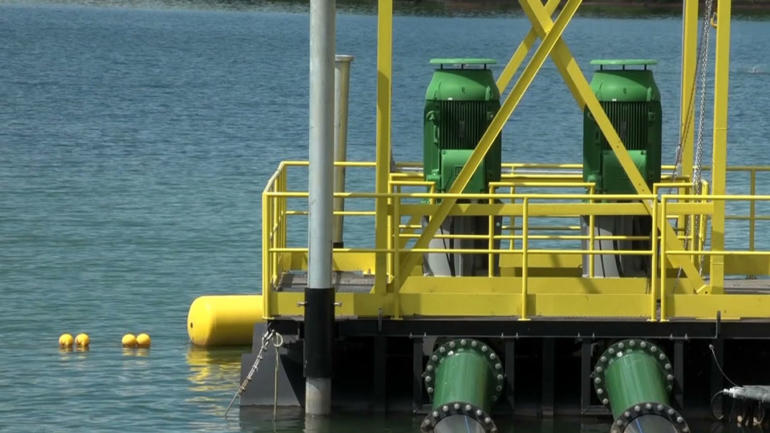A recent study found high levels of pesticides in the drinking water of about 25% of Brazil’s cities. These results have activists worried, with Brazilian agriculture heavily dependent on one chemical component.
CGTN’s Paulo Cabral reports from Sao Paulo.
Pesticides play a key role in Brazil’s large scale farming. They were essential in the country’s drive to become one of the world’s biggest food producers and exporters, but they can also seep into groundwater that supplies drinking water.
A recent study was conducted by a consortium of investigative journalists using official government data.
It unveiled that drinking water in 1,396 town (about one fourth of Brazilian cities) tested positive for traces of 27 kinds of pesticides. Eleven of these are forbidden in Brazil, and 21 are banned in the European Union.
Study authors even set up an online tool so people in Brazil can check results in their own cities. In most cases, each individual chemical was below officially acceptable levels, but this ignores the dangers of a so-called “cocktail effect.”
“In Brazil, there’s not a law to regulate this mix of substances,” Ana Aranha, pesticides editor for Reporter Brasil said. “If individually they are below the safety limit, we don’t have any safeguards. In the European Union, they do. There is a limit of half micrograms per liter of water for all substances combined.”
Now with Jair Bolsonaro in office (an ally of the agriculture industry), even more chemicals are in play with dozens of new pesticides approved for use this year alone.
Health and environmental activists are alarmed, but many farmers have said the worry is unwarranted. Many also believe there is too much misinformation about the true use of the chemicals.
Sao Paulo State Deputy Frederico D’Avlla belongs to President Bolsonaro’s party and is the vice-president of the Brazilian Association of Soybean Producers. He is a strong advocate for the use of pesticides.
“There is no way the world can feed 7.5 billion people without using these products,” he said. “Pesticides don’t harm anybody. I produce beans on my farm and the same beans I have at home for my family are the ones I sell to the market.”
 CGTN America
CGTN America

